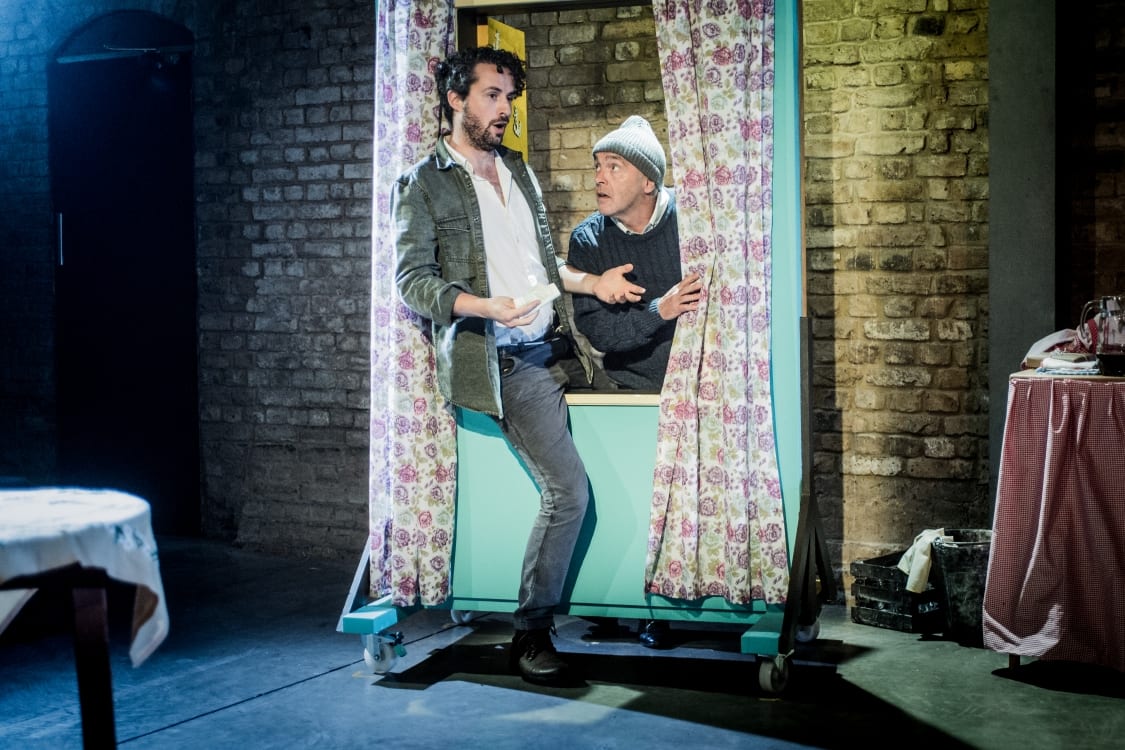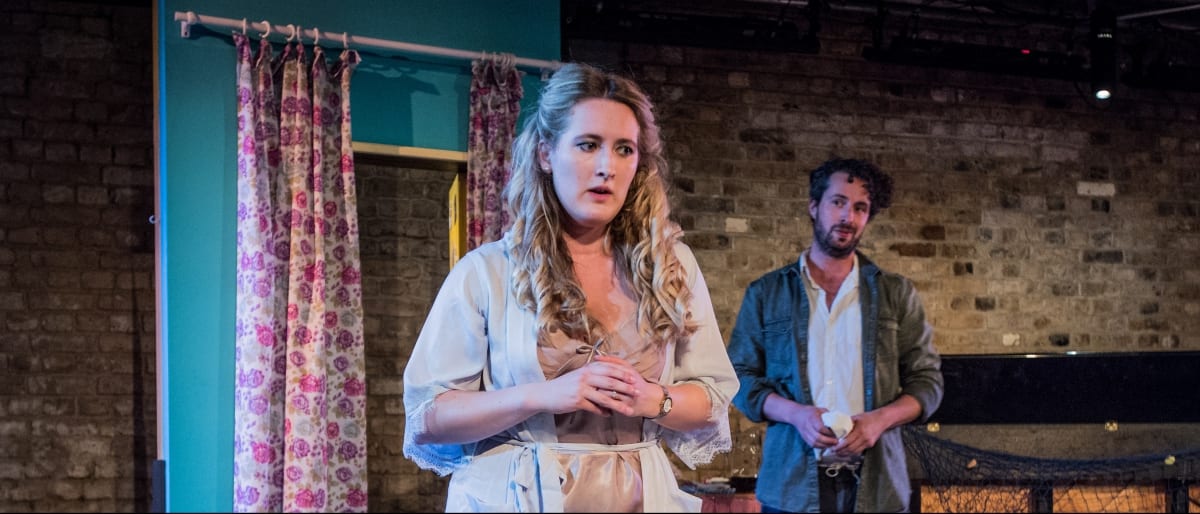The Grimeborn opera season at the Arcola Theatre in Dalston always throws up some fascinating curiosities – this charming comic opera by Ethel Smyth is certainly in that category. It was first performed in 1916 in London and was conducted by the composer herself. It is a strange creation – though in one act, the first part is a mix of spoken dialogue and songs while the second part is through-composed. There are echoes of folk songs and of Richard Strauss, an unlikely musical combination and one that is difficult to judge in the circumstances of this production where the music has been reduced for performance by a trio – piano, violin and cello – and the stage is the tiny downstairs studio at the Arcola.
Mrs Waters (Hilary Cronin) is a widow and the landlady of The Beehive. She has an unwelcome admirer: the boatswain Harry Benn (John Upperton). Having been firmly rejected, he dreams up a ruse to persuade Mrs Waters that she needs a man’s protection. As his accomplice he recruits Ned Travers (Shaun Aquilina), who has recently left the army. But the ill-planned plot misfires, the resourceful Mrs Waters gets the better of them both, and she is left triumphant with new options on the horizon.

The opera is updated to Margate in 1953, but even in this setting the first half of the story is a pretty ragged affair into which the singers do their best to inject some life and humour, with varying results. Comic opera needs fine songs and razor-sharp action – composer Smyth doesn’t quite come up with the goods, and director Cecilia Stinton is hard pushed to find the humour on a set where all we have for the pub is a bar with a barrel, a couple of tables, and a movable window. The excellent Hilary Cronin is more Rosie the Riveter than Bette Lynch in the early scenes and tenor John Upperton isn’t quite pushy enough as the amorous boatswain – indeed, he has an early song/aria of such melting sweetness that it almost makes the audience wonder why Mrs Waters is so hard on him. And the reluctant burglar sung by baritone Shaun Aquilina has an accent that veers between Sandhurst and Billingsgate, leaving us a bit confused about why he falls in with Benn’s ludicrous scheme.
The singing is good – sometimes very good – but there seems little in the score for the performers to get their teeth into. The second half is much better as Benn’s scheme goes awry and as Mrs Water’s resourcefulness comes to the fore. Composer Ethel Smyth was a brave suffragette and it is refreshing to see an opera where the female protagonist is the brave and quick-thinking lynchpin of the plot devices that bring the opera to what may be a happy ending. But the concerns of progressive women in 1915 and in 2018 really have moved on. No-one today could construct a plot based on the idea that a woman needs a husband to protect her … could they?
The three musicians do their best to bring the score to life, but I longed to hear the fully orchestrated version of Smyth’s music and to see a production with more resources to bring the comedy to life. And that is, in its way, a tribute to this brave production and to the worthy ambitions of the Spectra Ensemble.

